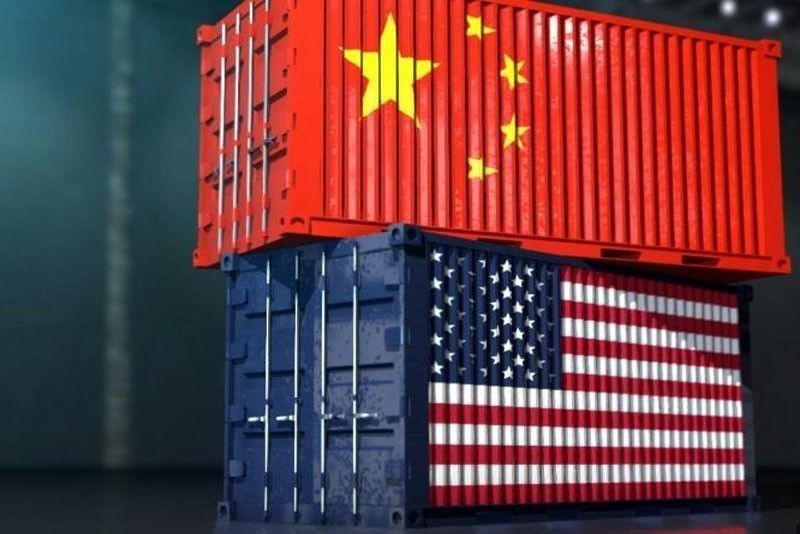Asian equities mostly up after US, China tariff moves

HONG KONG, China — Asian investors on Thursday cheered Donald Trump's decision to delay a hike in tariffs on Chinese goods and Beijing's announcement that it would remove a range of US products from its own planned levies.
The moves signal an easing of tensions between the two economic superpowers ahead of a much-anticipated meeting of top-level negotiators next month.
They also provided an extra shot in the arm for investors as they await key announcements from the US and European central banks that are expected to see a further easing of monetary policy.
In a tweet on Wednesday night, Trump said: "We have agreed, as a gesture of good will, to move the increased Tariffs on 250 Billion Dollars worth of goods (25% to 30%), from October 1st to October 15th."
He added that the delay was requested by "Vice Premier of China, Liu He, and due to the fact that the People's Republic of China will be celebrating their 70th Anniversary", on October 1.
Earlier in the day, China said it would temporarily exempt 16 categories of US exports from tariff increases in an olive branch to Washington before the talks take place and which Trump described as "a big move".
The more conciliatory tone from both sides -- after months of rancour -- fuelled hopes they can edge towards a solution to their long-running trade war, which has jolted the global economy and stock markets.
The delay "shows Trump doesn't want to increase tariffs before the trade talks in early October and it creates good conditions", said Tommy Xie, an economist at Oversea-Chinese Banking Corp. "It adds to the hope that there'll be good news from the October meeting, and markets will wait and see."
Wednesday's developments were broadly welcomed though Asian markets struggled to hold on to initial rallies owing to profit-taking from a healthy run-up this week.
Central banks in focus
Tokyo ended the morning 0.8 percent higher and Shanghai added 0.2 percent while Sydney climbed 0.5 percent. Wellington and Taipei also rose, as did Jakarta, but Hong Kong dipped 0.2 percent.
Jun Inoue, a senior economist at Mizuho Research Institute, said Trump's move indicates he "can be flexible to get concessions from China and that he’s not trying to punish Beijing at any cost".
The apparent easing of trade tensions boosted oil prices as the prospect of an end to the row revived hopes for demand.
However, the gains followed a sharp drop for both main contracts as traders bet on a possible return of Iranian crude to the market after the firing of Trump's hawkish national security adviser John Bolton eased fears of a conflagration in the Middle East.
Traders are now turning their attention to Frankfurt, where the European Central Bank is expected to unveil economy-boosting stimulus. While the exact measures are unknown observers say it could cut interest rates deeper into negative territory or a new mass bond-buying drive, among other things.
Then, next week the Federal Reserve meets, with speculation rife that it will lower borrowing costs again, which would please Trump, who in a Twitter outburst on Wednesday said they should "BE BROUGHT WAY DOWN".
In share trading, Hong Kong Exchanges and Clearing sank more than three percent after its shock bid of almost US$40 billion for the London Stock Exchange Group on Wednesday.
Reports said the proposal is likely to fail, however, as it is dependent on the LSEG scrapping a planned $27 billion takeover of US financial data provider Refinitiv, which the three-centuries-old exchange said it "remains committed" to buying.
There are also concerns about ongoing unrest in Hong Kong and the influence of China in the group, the Financial Times reported.
- Latest
- Trending



























